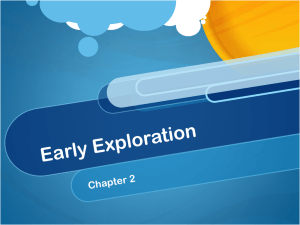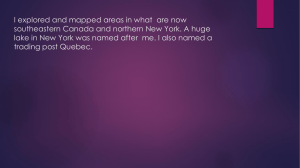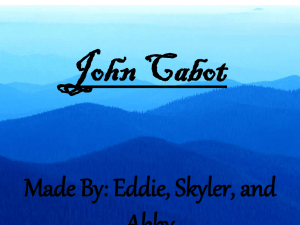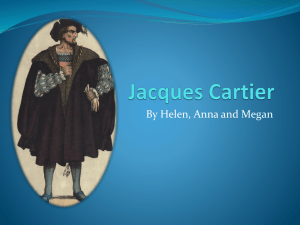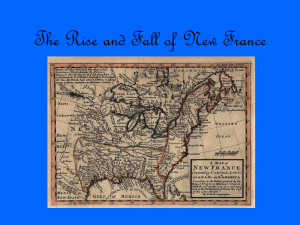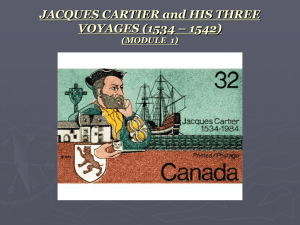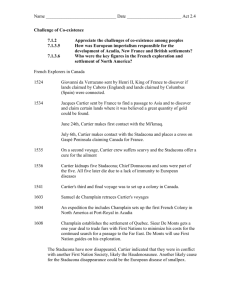HISTORY OF CANADA
advertisement
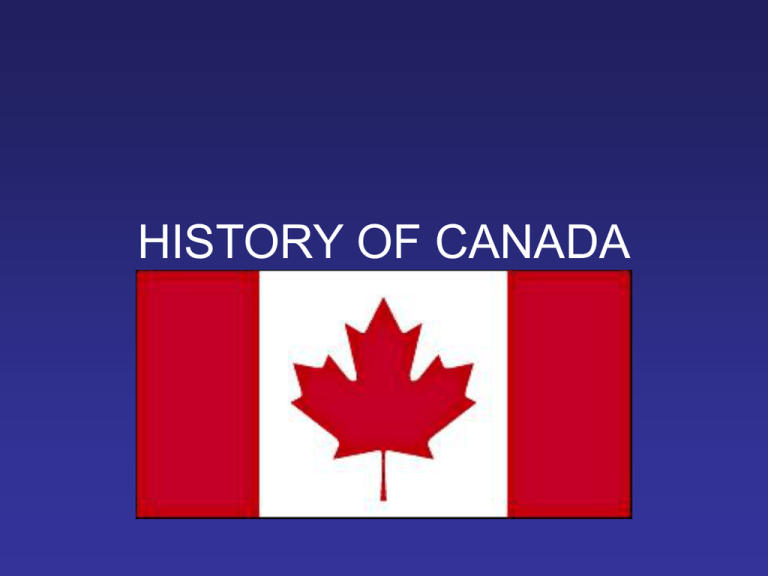
HISTORY OF CANADA ~ 40,000 – 30,000 BC: Prehistoric hunters migrate from Asia across the Bering strait land bridge to settle North America ~ 9000 BC: Native people are living along the Eramosa River near todays Guelph, Ontario ~ 5000 BC: Native people have spread into todays Northern Ontario and Southeastern Quebec Other migrants from Asia came later, perhaps as recently as 4,000 years ago, bringing new languages and different types of tools and weapons. Different cultures and nations developed throughout Canada, with at least 11 separate language groups with hundreds of individual languages and a variety of ways of living. ~ 2000 BC: Inuit people begin to move into what is now the Northwest Territories Viking colonists of Iceland and Greenland were the first Europeans known to have reached North America. They began to visit the northeast coast of Canada about AD 985, when they settled Greenland. Leif Ericson of Greenland sailed west about AD 1000 to a place he called Vinland and built a settlement there. This may have been L’Anse aux Meadows, a place on the island of Newfoundland and Labrador where remains of a Viking village were found in the 1960s. But the colony did not last long. THE VIKING SAGA http://collections.ic.gc.ca/rock/pages/presentation.html John Cabot (Giovanni Caboto), an Italian in the service of England, sailed to Newfoundland in 1497. Cabot searched for a Northwest Passage, a westward sea route to the wealthy empires known to exist in Asia. JOHN CABOT http://collections.ic.gc.ca/rock/pages/cabot.html Jacques Cartier came from the French court of King Francis I to explore North America. In 1534, on his first voyage, he explored the Gulf of St. Lawrence. In Chaleur Bay, he met aboriginal people for the first time. They were Micmac people, and their meeting was the first time that the French and the natives traded furs. For centuries to come, fur trading would be important in the development of the North American colonies. When Cartier sailed up the gulf and into the Bay of Gaspé, he and his men were greeted warmly by a group from the Iroquoian nation of Stadaconé. They had come from their home, which is now the site of Québec City, on a fishing expedition. The story goes that Cartier asked the chief, Donnacona, what the land was called. The chief, who was inviting Cartier into their camp, replied "kanata," their word for village, as well as their name for the area around their home. Maybe Cartier understood Donnacona, or maybe he did not, but "Canada" has remained the name of the whole vast territory that comprises our country. Jaques Cartier auf http://www.histori.ca/ NOW IT‘S YOUR TURN TO FIND OUT MORE ABOUT THE HISTORY OF CANADA
